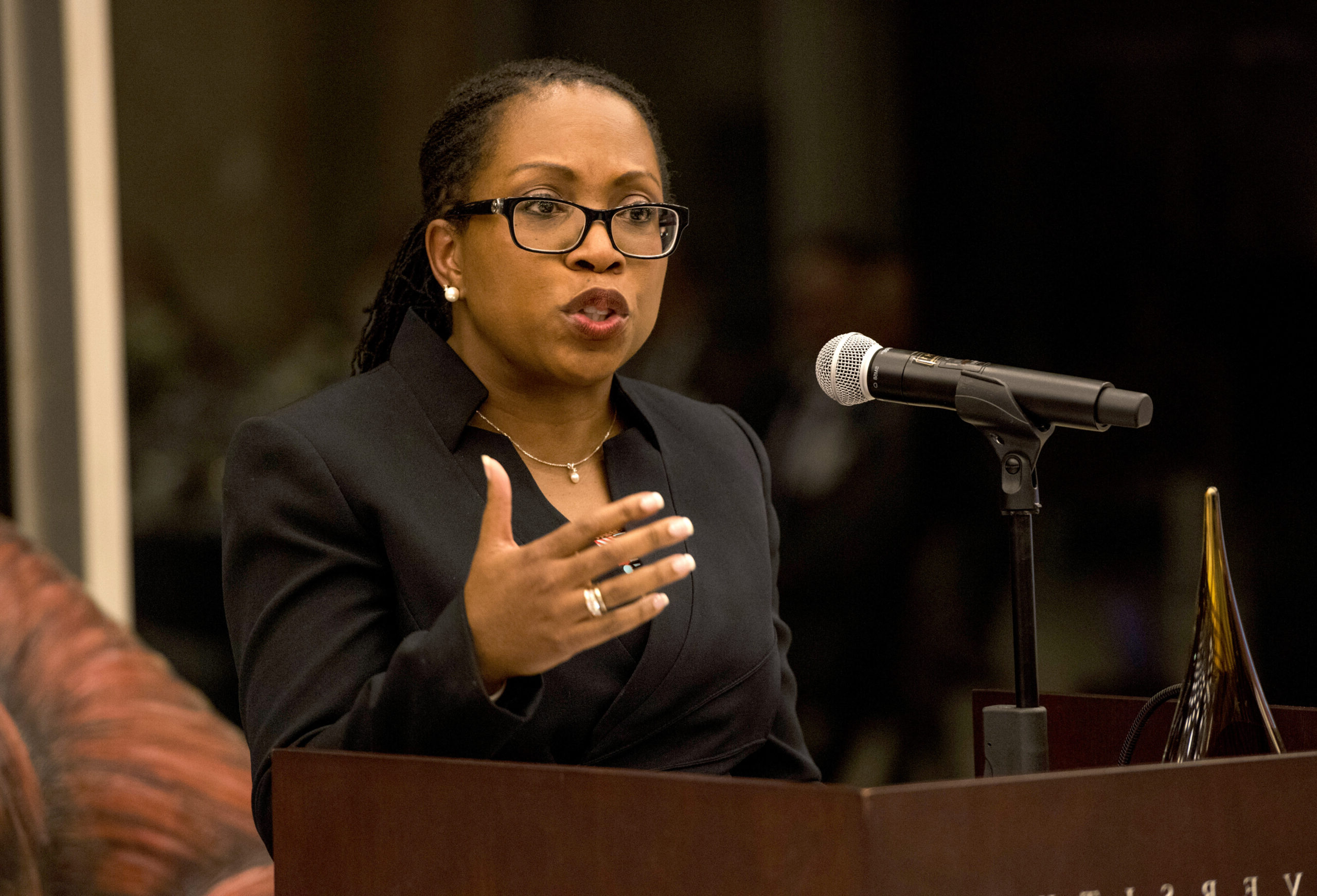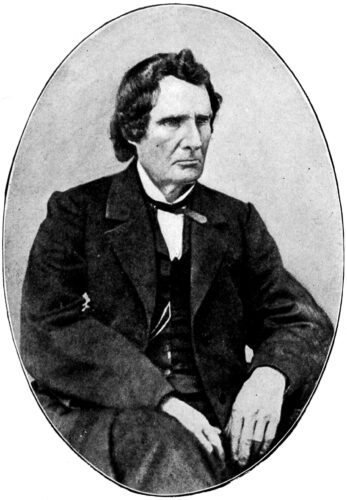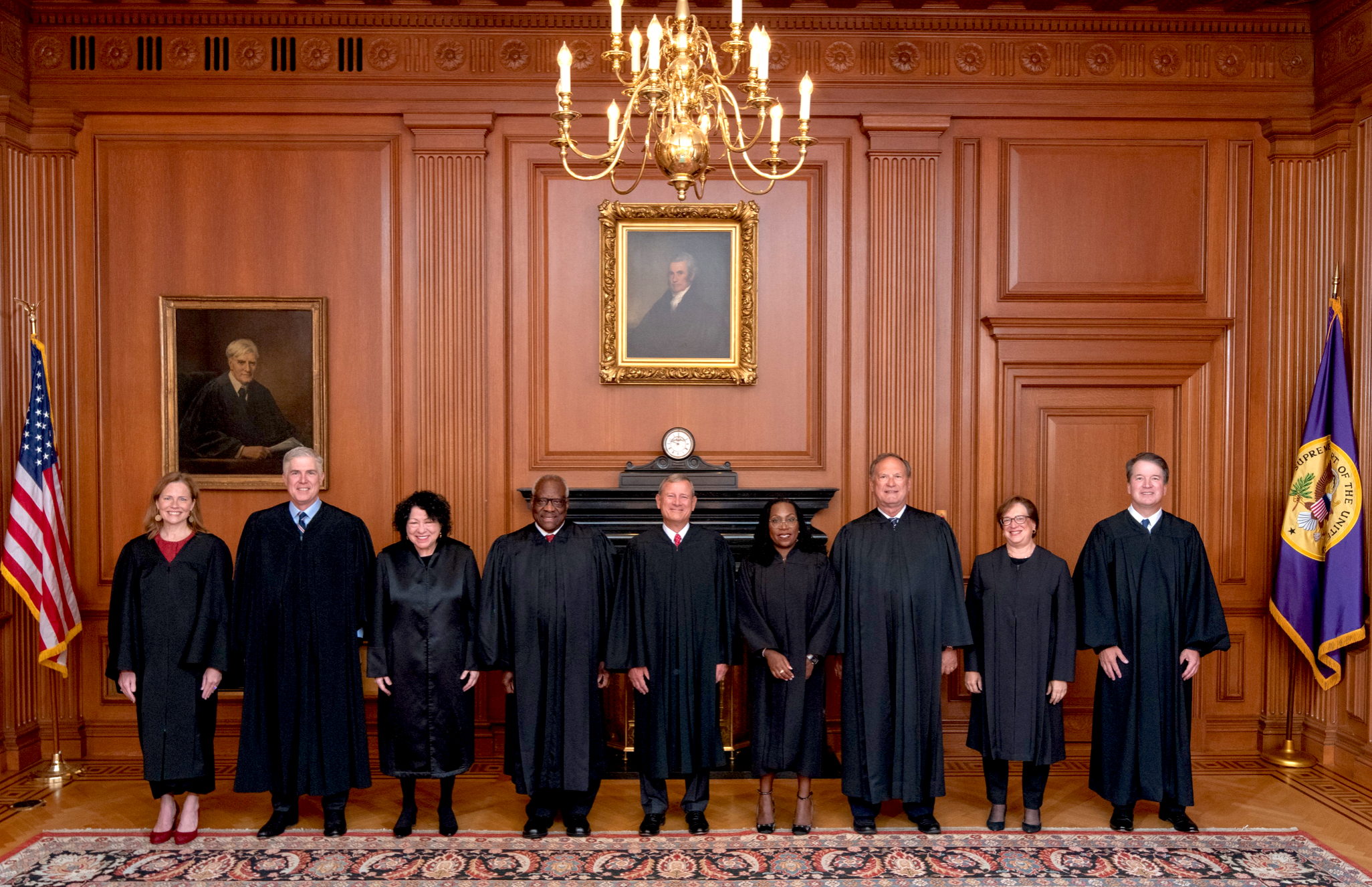Marjorie Cohn describes how Ketanji Brown Jackson crafted her own originalist argument to defend taking race into account when drawing voting district maps.

Ketanji Brown Jackson in 2020. (Wikicago, CC BY-SA 4.0, Wikimedia Commons)
 During the Supreme Court’s oral arguments in Merrill v. Milligan, a case that could deal a severe blow to the Voting Rights Act, Ketanji Brown Jackson powerfully rebutted right-wing attacks on voting rights by using her own “originalist” analysis of the 13th, 14th and 15th Amendments to explain why congressional district maps cannot constitutionally be drawn in a “race-neutral” way.
During the Supreme Court’s oral arguments in Merrill v. Milligan, a case that could deal a severe blow to the Voting Rights Act, Ketanji Brown Jackson powerfully rebutted right-wing attacks on voting rights by using her own “originalist” analysis of the 13th, 14th and 15th Amendments to explain why congressional district maps cannot constitutionally be drawn in a “race-neutral” way.
Liberal judges are not generally adherents to originalism — a judicial approach that insists that constitutional provisions must be interpreted based on the popular meaning they had at the time they were drafted and that has generally been used by conservatives to justify right-wing positions such as the overturning of Roe v. Wade. But in her defense of voting rights, Jackson brilliantly turned the tables on the right by crafting her own originalist argument to defend taking race into account when drawing district maps.

Edmund LaCour Jr. in 2021. (Public domain)
“The framers themselves adopted the equal protection clause, the Fourteenth Amendment, the Fifteenth Amendment, in a race conscious way,” Jackson said, responding to Alabama Solicitor General Edmund LaCour’s claim that maps must be created in a “race-neutral” manner.
At issue in Merrill is Alabama’s GOP-created district map, which includes only one Black-majority district out of seven districts, despite the fact that Black people comprise 27 percent of the population. LaCour was in effect arguing that a successful challenge to a district map requires proof of discriminatory intent. But Congress has clearly said that a map violates the Voting Rights Act if its effects are discriminatory, regardless of the intent of the mapmakers.
The state of Alabama maintains that the consideration of race in drawing maps violates the 14th Amendment’s equal protection clause, claiming that it discriminates against white people.
“I don’t think we can assume that just because race is taken into account that that necessarily creates an equal protection problem,” Jackson said, schooling LaCour on the intent of the framers of the 14th Amendment.
Jackson noted “they were, in fact, trying to ensure that people who had been discriminated against, the freedmen during the reconstruction period, were actually brought equal to everyone else in the society.” She said that “the entire point of the amendment was to secure rights of the freed former slaves.”
The 13th Amendment abolished slavery. The 14th Amendment prohibits states from denying equal protection of the law. And the 15th Amendment forbids abridgment of the right to vote on account of “race, color, or previous condition of servitude.”

Thaddeus Stevens. (William Archibald Dunning, Wikimedia Commons)
Citing the report of the Joint Committee on Reconstruction that drafted the 14th Amendment, Jackson quoted Republican Rep. Thaddeus Stevens of Pennsylvania. When he introduced the amendment, Stevens said that “unless the Constitution should restrain them, those states will all, I fear, keep up this discrimination and crush to death the hated freedmen.” (Stevens could have been talking about Alabama.)
“That’s not a race-neutral or race-blind idea in terms of the remedy,” Jackson observed, noting that the drafters of the Civil Rights Act of 1866 “specifically stated that citizens would have the same civil rights as enjoyed by white citizens. That’s the point of that Act, to make sure that the other citizens, the black citizens, would have the same as the white citizens.”
Since the framers were concerned “that the Civil Rights Act wouldn’t have a constitutional foundation, that’s when the Fourteenth Amendment came into play,” Jackson said. It provided “a constitutional foundation for a piece of legislation that was designed to make people who had less opportunity and less rights equal to white citizens.” That, Jackson told LaCour, “was doing what the Section 2 is doing here.”
Section 2 of the Voting Rights Act of 1965 prohibits any voting practice that “results in a denial or abridgment of the right of any citizen of the United States to vote on account of race,” which occurs when minority voters “have less opportunity than other members of the electorate to participate in the political process and to elect representatives of their choice.” Section 2 was enacted to enforce the 15th Amendment.
[Related: US Supreme Court May Legalize Election Theft]
In 1980, the Supreme Court ruled in City of Mobile v. Bolden that in order to obtain relief under Section 2 of the Voting Rights Act, the plaintiff had to prove that the abridgement of voting rights was intentionally discriminatory.

The Roberts Court justices, from June 2022 to present. Left to right: Amy Coney Barrett, Neil Gorsuch, Sonia Sotomayor, Clarence Thomas, Chief Justice John Roberts, Ketanji Brown Jackson, Samuel Alito, Elena Kagan and Brett Kavanaugh. (SCOTUS, Public Domain)
Two years later, however, Congress amended Section 2 to specify that a voting procedure which has the effect of abridging the right to vote due to race, color, language or minority status is illegal, regardless of whether the plaintiff could prove discriminatory intent. The discriminatory effect can be proved by considering the “totality of the circumstances.”
In January, a three judge-panel of the federal district court (including two Trump-appointees) concluded that Alabama’s map likely violates Section 2 of the Voting Rights Act, and ordered the state to create a second Black majority or plurality district.
But a 5-4 conservative majority of the Supreme Court halted the district court ruling and allowed the discriminatory map to be used in the 2022 midterm elections. The high court heard oral arguments in Merrill on Oct. 4.
Even the right-wingers on the court appeared hesitant to adopt LaCour’s invitation to require discriminatory intent, which Congress has clearly rejected. But don’t be surprised if they find a narrower ground on which to uphold Alabama’s racist map.
They might rule that the new majority-Black district could not be “reasonably compact” to satisfy the test set forth in the Supreme Court’s 1986 decision in Thornburg v. Gingles. It says that in order to successfully challenge redistricting maps that illegally dilute the voting power of a minority group, the plaintiff must show that the group is sufficiently large and compact to constitute a majority.
Brett Kavanaugh cited Alabama’s argument that the “district is too sprawling to be reasonably compact or reasonably configured.” Samuel Alito characterized that argument as “basic” and “least far-reaching.”
Such a ruling would present significant hurdles to future challenges to redistricting maps which claim that they dilute the collective voting power of Black people.
Marjorie Cohn is professor emerita at Thomas Jefferson School of Law, former president of the National Lawyers Guild, and a member of the national advisory boards of Assange Defense and Veterans For Peace, and the bureau of the International Association of Democratic Lawyers. Her books include Drones and Targeted Killing: Legal, Moral and Geopolitical Issues. She is co-host of “Law and Disorder” radio.
This article is from Truthout and reprinted with permission.
The views expressed are solely those of the author and may or may not reflect those of Consortium News.

Seems to be a case of “equality of opportunity” vs “equality of outcome.”
Parties and affiliated people and organizations shouldn’t be able to come within miles of any power to control elections.
Great. Now, please offer your idea for a solution.
You can’t, because there isn’t one, which is why the fallback idea is to let opposing sides hack it out and thus neutralize each other via the process of competing interests. This resort happens all across politics, and it’s why politics, which people have been trying to make pretty for 500 years (at least in the Western World) remains an ugly affair that is done out of necessity rather than for the love of it.
This appears to ignore how you count people is not the same as how people are counted in an election.
Think long and hard about what the word count means in both contexts.
Ketanji-Brown seems misguided to me. It appears to me the 13th, 14th, and 15th amendments are in fact “race-neutral”, even if the reason for their introduction included the need to address racial inequality. Black, white, indigenous, hispanic, asian, etc. citizens all enjoy the same protections under 13, 14, and 15. That is what a “race-neutral” society looks like, and that is what we should be aiming for.
“the collective voting power of Black people” makes the assumption that Black people vote alike. Is this true? Do all ethnic groups vote as a bloc? Here in the UK, the centrist Labour party made that assumption for many decades, only to find in recent years that Black people are no different than any other people and often vote for Tories, or socialists, or Greens.
Democrats are making it clearer every day that there is no reason for POC to prefer their party over others unless they love being disappointed.
Not interested in the opinions of a woman who can’t say what a woman is. She needs to return to school and learn some basic biology.
Perhaps you will enlighten us with your expertise, Ms Siens.
It’s very clear what she meant by: “Not interested in the opinions of a woman who can’t say what a woman is. She needs to return to school and learn some basic biology.”
I stand by Tulsi Gabbard and JK Rowlings. Sanity is going out the window.
It doesn’t take “expertise” to describe what a woman is — unless you’re an ideologically confused science denier.
Your reply smacks of the ultra right wing as is usual for those who have troubles with the truth.
Kill the messenger by using personal attacks, and without any attempt to hide your intent. Shame on you Susan!
That’s great because nobody gives a damn what you’re interested in. It’s the state of the world. You knew that, right?